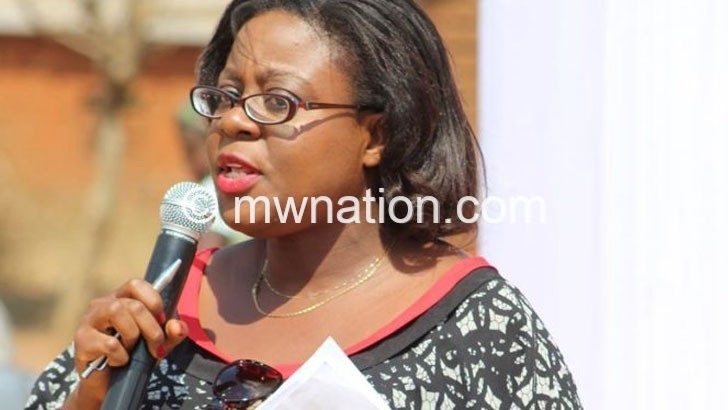Oxfam queries Covid-19 cash transfer absence
Oxfam in Malawi has questioned the budget slash for social services and the absence of allocation for the much-touted Covid-19 response cash transfer in the K2 trillion 2020/21 national budget amid Covid-19 increase in cases.
The organisation believes social services needed to have increased allocation to show government’s seriousness in response to the pandemic that is ravaging the economy and social economic well-being of the citizens.

In its budget analysis brief, Oxfam country director Lingalireni Mihowa notes that the proposed emergency cash transfer of K35 000 to 172 000 people would require K6 billion per month and K36 billion over the government’s planned six months but wondered why the allocation has not been included in the social benefits allocation.
Mihowa also observes that in the state of Covid-19 disaster, it is also confusing to note that the budget for Disaster and Risk Management has been reduced from K56 billion in 2019/20 national budget to K11 billion in 2020/21 budget.
Said Mihowa: “Covid-19 response represents a major financial imposition on the fiscus as it will slow down the real sector, foreign sector and fiscal sector and monetary measures may also lead to an edging up of inflation.
“Another puzzle is that in the education budget there is no provision for health care inputs for Covid-19 response in readiness of school opening in July such as budget line for provision of masks, hand washing, detergents and sanitisers in schools.”
She also also noted that while Government has pleaded with companies not to lay off workers due to Covid-19 economic hardships, the same Government has also declared that it will not provide any stimulus package or bail out to private sector adding that Government’s priorities in resources remain at variance with promoting common person’s welfare.
However, Minister of Finance Economic Planning and Development Joseph Mwanamvekha said the budget has Covid-19 pandemic resources but also banks on development partners support in all forms including cash transfers.
Mwanamvekha conceded that the pandemic threatens livelihoods of the peri-urban
vulnerable and ultra-poor by potentially exposing them to massive disruption to their health care, education, access to basic needs among others.
He said: “With support from development partners, government has developed a peri-urban emergency cash transfer response to cushion the peri-urban population from the socio-economic effects of the pandemic.
He said the intervention is expected to target the peri-urban areas in Mzuzu, Lilongwe, Blantyre and Zomba covering approximately 172 337 households, each receiving a monthly sum of K35 000 from this month.
Treasury spokesperson Williams Banda admitted that government has been operating on a deficit budget for many years and the Covid-19 has worsened its operations such that Treasury cannot afford to provide bailouts or stimulus packages to the private sector.
However, Oxfam argues that in a country where half of the rural population and 20 percent of the urban population live in poverty, the provision of 15 000 bursaries and 5 000 cash transfers is cosmetic and falls relative to the need.
In the budget, the allocation for the Ministry of Agriculture and Water Development has been reduced from K184 billion in 2019/20 to K105 billion for 2020/21. Similarly, the budget for the Ministry of Gender, Women, Children and Disability Ministry has been cut by more than half from K34 billion in 2019/20 to K14 billion in 2020/21.
To this effect Oxfam points that the sacrifice required of the private sector and public sector workers is not matched by Government’s tax expenditures.





